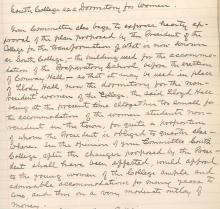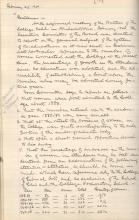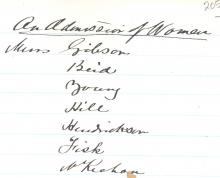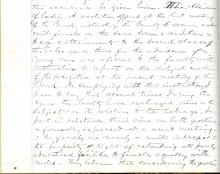The Board of Trustees Places a Quota on Female Students, 1923
On June 4, 1923, Trustee Boyd Lee Spahr asked that the Board of Trustees return to the 1917 discussion on a quota on female students. He argued that the number of female students should be limited to 125 beginning in the 1924-25 school year. Disagreeing with Spahr, Trustee Walter Sounders contended that the number of female students should be capped at 25% of total enrollment. The Board agreed with Sounders and the amended motion was carried.






